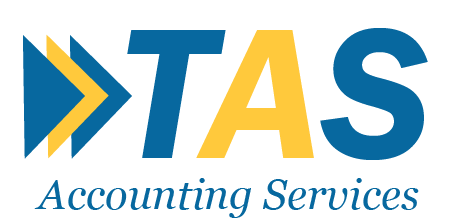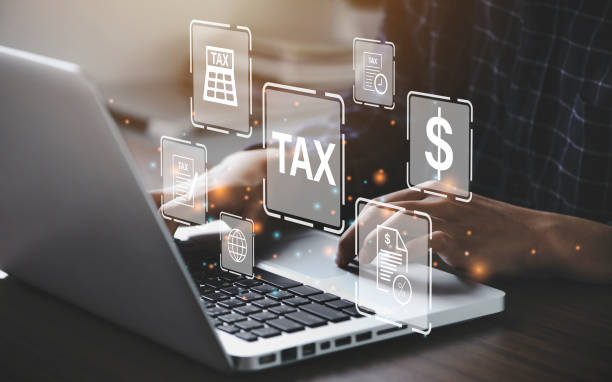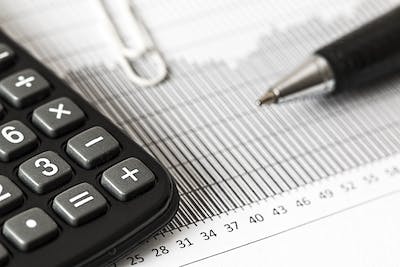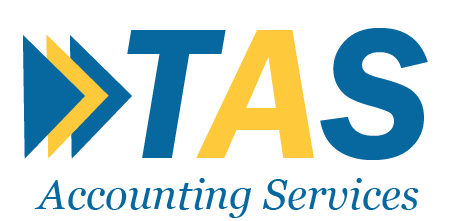What is VAT Registration?
VAT registration is the process by which a business or individual registers with the tax authorities to charge VAT on their products or services. Once registered, businesses must collect VAT on taxable sales and submit it to the tax authorities, usually on a quarterly or monthly basis. This process not only ensures compliance with local tax regulations but also allows registered businesses to reclaim any VAT paid on purchases related to their operations. Being VAT registered can enhance the credibility of a business, making it more appealing to customers who prefer to engage with compliant and established entities.
Introduction
Value Added Tax (VAT) is a consumption tax levied on goods and services. If your business meets certain thresholds or criteria, VAT registration may be mandatory. Similarly, if your business no longer meets those criteria, you might need to deregister from VAT. This guide will walk you through the processes of VAT registration and VAT de-registration, helping you understand when and how to proceed.
VAT Registration
1. What is VAT Registration?
VAT registration is the process by which a business or individual registers with the tax authorities to charge VAT on their products or services. Once registered, businesses must collect VAT on taxable sales and submit it to the tax authorities, usually on a quarterly or monthly basis.
2. Who Needs to Register for VAT?
Voluntary Registration: Even if your turnover is below the threshold, you can voluntarily register for VAT. This is often beneficial if you deal primarily with VAT-registered businesses, as it allows you to reclaim VAT on your purchases.
Threshold Requirement: Businesses whose taxable turnover exceeds a specific threshold within a 12-month period are required to register for VAT.
How to Register for VAT?
Gather Necessary Information
To begin the VAT registration process, collect essential information regarding your business. This includes your business name, address, and contact details, along with your bank account information. Additionally, prepare records of your taxable turnover, as this will help determine your eligibility for registration.
Complete the VAT Registration Form
Next, complete the VAT registration form, which can be found on your local tax authority’s website. You typically have the option to fill out the form online or to print and submit a paper form.
Submit the Application
After ensuring that all the information is accurate, submit your application. Upon approval, you will receive your VAT registration certificate, which will include your unique VAT number. This number is crucial for your business operations, enabling you to charge VAT on your sales legally.
Obligations After VAT Registration
Charging VAT
Once registered for VAT, you are required to start charging VAT on all taxable goods and services from the date of your registration. This means it’s essential to adjust your pricing structure to include VAT in the final cost presented to the customer, ensuring clarity on the invoicing process.
Record Keeping
Maintaining detailed records is crucial in your VAT obligations. You must keep accurate documentation of all sales, purchases, and VAT payments. This includes invoices, receipts, and any relevant correspondence with customers and suppliers. Proper record-keeping not only ensures compliance but also facilitates smoother VAT return filings and potential audits.
Filing VAT Returns
You are also responsible for regularly filing VAT returns, as mandated by your local tax authority. This typically occurs on a quarterly or monthly basis, depending on the regulations in your jurisdiction. Make sure to report your total sales, purchases, and any VAT collected and owed accurately to avoid penalties or interest charges.
What is VAT De-Registration?
VAT de-registration is the process of cancelling your VAT registration with the tax authorities. This typically occurs when a business ceases operations, falls below the VAT threshold, or switches to a different tax scheme that no longer requires VAT registration. De-registering is essential to ensure that your business complies with tax regulations and to avoid unnecessary VAT obligations. Upon de-registration, the business must file a final VAT return and may need to repay any input tax claimed on assets held at the time of de-registration. Understanding the conditions and necessary steps for VAT de-registration is crucial for maintaining compliance and managing your business’s tax responsibilities effectively.
When Should You De-Register for VAT?
Ceasing Business
One of the primary reasons for VAT de-registration is if your business closes or if you cease making taxable supplies. In this situation, it’s crucial to notify the tax authorities promptly to ensure compliance and avoid any potential penalties or liabilities.
Falling Below the Threshold
If your taxable turnover falls below the de-registration threshold set by the tax authorities, you may also be eligible to de-register from VAT. It’s important to monitor your turnover regularly and submit the necessary paperwork if you consistently remain below this limit, as this can simplify your tax obligations.
Change in Business Structure
A significant change in your business structure can also trigger the need for VAT de-registration. This includes scenarios such as transferring or selling your business, merging with another entity, or restructuring your operations that may change your tax status. In such cases, filing for de-registration ensures that your business is aligned with the current tax requirements.
How to De-Register for VAT?
Review Your Eligibility
Before initiating the de-registration process, it is crucial to review your eligibility to de-register, ensuring that you meet the conditions set by the tax authorities. These conditions may include ceasing operations, falling below the taxable turnover threshold, or significant changes in your business structure.
Complete the VAT De-Registration Form
Once you have confirmed your eligibility, the next step is to complete the VAT de-registration form. This form is typically available on your local tax authority’s website, and you will have options for online submission or printing a paper version for mailing.
Submit the Form
After filling out the de-registration form, submit it along with any required documentation that may support your application. Ensure all information is accurate to prevent delays in processing.
Await Confirmation
Once your application is approved, you will receive confirmation from the tax authorities regarding your de-registration. It is important to stop charging VAT from the date of de-registration to ensure compliance with the regulations.
Post De-Registration Obligations
Final VAT Return
Upon de-registration, it is essential to submit a final VAT return. This return must account for any VAT due on stock or assets held at the time of de-registration. Ensure that any outstanding VAT is accurately calculated and reported, as failure to do so may result in penalties or compliance issues. This final return should be submitted within the timeline stipulated by your local tax authority to maintain adherence to regulations.
Record Keeping
After de-registration, you are still required to retain VAT records for a specified period, typically several years, as mandated by the tax authorities. This includes maintaining all documentation related to sales, purchases, and VAT transactions during the period of your VAT registration. Proper record-keeping will facilitate any potential audits and ensure that you can address any queries from the tax authority regarding your VAT history. This diligent practice protects your business’s interests and promotes compliance with tax obligations.
Who Needs to Understand VAT Obligations?
Understanding VAT obligations is essential for various groups within the business landscape.
Small Business Owners and Entrepreneurs
Individuals who are starting or currently running small to medium-sized businesses must grasp their VAT responsibilities. This knowledge helps ensure compliance and enables better financial planning.
Freelancers and Sole Traders
Independent professionals may find themselves needing to register for VAT based on their income levels or the particular nature of their services. Familiarity with VAT regulations is crucial for managing their financial and legal obligations.
Finance and Accounting Professionals
Accountants, bookkeepers, and financial advisors play a vital role in guiding clients through the complexities of VAT registration and de-registration processes. Their expertise is essential for ensuring compliance and optimal tax strategies.
Corporate Executives and Managers
Decision-makers within companies, particularly those in finance, operations, or legal departments, are responsible for ensuring adherence to tax regulations. A solid understanding of VAT is critical for effective governance and risk management.
Startups and New Ventures
New businesses in their early stages must understand VAT registration requirements as part of their legal and financial setup. This understanding helps facilitate growth while ensuring compliance from the outset.
Online Retailers and E-commerce Businesses
Companies engaged in online sales, especially those approaching the VAT threshold, need to understand their obligations regarding registration or deregistration to adhere to tax laws effectively.
Tax Consultants and Legal Advisors
Professionals in tax consulting and legal advisory services offer specialized guidance to businesses navigating VAT procedures. Their expertise helps clients mitigate risks associated with non-compliance.
Educational Institutions and Students
Business and finance students, alongside educational institutions providing resources on tax compliance, benefit from a clear understanding of VAT regulations to prepare for careers in finance and accounting.
Non-Profit Organizations
Organizations involved in taxable activities may also need to register for VAT or seek to reclaim VAT on purchases. Understanding VAT is essential for these entities to manage their financial resources effectively.
Key Steps Involved in VAT Registration
Determine Eligibility
Assess whether your business meets the VAT registration threshold set by your local tax authority. This typically involves monitoring your taxable turnover over a 12-month period. If your turnover exceeds the threshold, you are required to register for VAT. Additionally, consider voluntary registration if your turnover is below the threshold but you deal with VAT-registered businesses, as it may provide potential benefits such as reclaiming VAT on your purchases.
Gather Required Information
Collect all necessary information and documentation required for the VAT registration form. This often includes your business details, tax identification number, and financial records demonstrating your taxable turnover. Having accurate, up-to-date information will facilitate a smoother registration process.
Complete the VAT Registration Form
Fill out the VAT registration form, which can usually be found on your local tax authority’s website. Ensure that all sections of the form are completed accurately, as any discrepancies may lead to delays in processing your application.
Submit the Application
Once the form is completed, submit it as per the instructions provided, whether electronically or via mail. Keep a record of your submission, including any reference numbers, to track the status of your application.
Await Confirmation of Registration
After submission, wait for confirmation from your local tax authority regarding your VAT registration. This process may take several weeks, and you will receive your VAT registration number upon approval. Ensure to use this number on all invoices and business documents once registered.
Gather Required Information
To successfully complete your VAT registration, you need to collect and prepare the following information:
Complete the VAT Registration Application
Access the VAT registration form on your local tax authority’s website or obtain a paper form if required. Ensure that you provide accurate and comprehensive details about your business. This includes your expected turnover, which helps the tax authority assess your eligibility for VAT registration, as well as a clear description of your business activities. Additionally, include the proposed start date for your VAT registration, as this information is crucial for processing your application and determining your obligations from that point forward. Accuracy is key; any errors or omissions could result in processing delays or compliance issues later on.
Submit the Application
Submit the completed VAT registration form online or by mail, following the specific instructions outlined by your local tax authority. Ensure that you retain a copy of your application and any confirmation of submission. Once your application is submitted, wait for confirmation from the tax authority, which typically includes your VAT registration number and the effective date of registration. It’s important to monitor your application status, as delays in processing can vary, and having your registration confirmed is crucial for compliance with VAT obligations.
Update Your Business Practices
Once you receive confirmation of your VAT registration, it’s essential to update your business practices to ensure compliance with VAT regulations. Start charging VAT on all taxable goods and services from the date of registration, ensuring that the appropriate rate is applied based on the nature of your products or services. Additionally, issue VAT-compliant invoices to your customers, which should clearly indicate the VAT amount charged and your VAT registration number. To effectively manage your VAT obligations, adjust your accounting system to track VAT on both sales and purchases. This encompasses recording the VAT you collect from customers as well as the VAT you pay on your business expenses, laying the groundwork for accurate VAT returns and compliance with ongoing reporting requirements.
Maintain Compliance
To ensure continued compliance with VAT regulations, it is crucial to keep detailed records of all VAT-related transactions. This includes invoices issued, purchases made, and any VAT collected or paid. Regularly filing VAT returns, typically on a quarterly or monthly basis as required by your tax authority, is essential for accurate reporting and accountability. Be mindful of the deadlines set by your local tax authority to avoid late filings. Additionally, make timely payments of any VAT due to prevent penalties and interest charges, which can adversely affect your business’s financial health. Establishing a robust accounting system will aid in maintaining comprehensive records and streamline the VAT return process, ensuring that your business remains compliant with all relevant regulations.
Key Steps Involved in VAT De-Registration
Gather Necessary Documentation
Prepare documentation to support your de-registration request, such as financial records showing reduced turnover or proof of business closure. This may include recent financial statements, profit and loss accounts, or tax returns that illustrate your current VAT status. If your de-registration is due to a change in business activities or structure, relevant documents—such as incorporation papers or dissolution certificates—should also be collected. Additionally, ensure you have your VAT registration number and any correspondence with tax authorities readily available, as these will facilitate a smoother de-registration process. Having complete and accurate documentation is vital to substantiate your eligibility for de-registration and expedite the approval process.
Complete the VAT De-Registration Form
Access the de-registration form on your tax authority’s website. Ensure you have the latest version of the form, as regulations may change. Fill out the form meticulously with accurate details about your business, including your VAT registration number, business name, and contact information. Clearly indicate the reason for de-registration, whether it’s due to ceasing business operations, falling below the VAT threshold, or any other qualifying circumstances. It’s essential to double-check all entries for completeness and accuracy, as errors could delay the processing of your de-registration application. If required, attach any supporting documentation to substantiate your reason for de-registration, ensuring that they are properly labelled and easy to reference.
Submit the De-Registration Application
Submit the completed form to the tax authority, either online or by mail, depending on the options available. Ensure that all sections are thoroughly filled out and that any required supporting documents are attached. Once submission is complete, await confirmation of your de-registration request. This confirmation will specify the effective date from which you should stop charging VAT, so it’s essential to keep an eye out for this communication. Retaining a copy of the submitted form and any correspondence is advisable, as it may be necessary for future reference or in case of any inquiries from the tax authority.
Fulfill Final VAT Obligations
Upon de-registration, it is crucial to submit a final VAT return that accurately reflects your business’s VAT activities until the effective date of de-registration. This return should account for any VAT due on stock, assets, or outstanding invoices as of that date. Ensure that you calculate any potential VAT liabilities on remaining inventory or assets that are no longer taxable due to the de-registration. Once the final VAT return is submitted, make prompt payments for any remaining VAT liabilities to avoid late fees or penalties. Keeping clear records of this process will aid in maintaining compliance and ease any future inquiries from tax authorities.
Retain VAT Records
Keep all VAT records for a specified period (usually several years) as required by the tax authority, even after de-registration. This includes documents such as invoices, receipts, and financial statements that support your VAT submissions. Retaining these records is essential for potential audits or inquiries from tax authorities, as they may request proof of your VAT transactions even after your business has ceased operations. Maintaining organized and easily accessible records will facilitate compliance and ensure that you can swiftly respond to any future requests for information concerning your previous VAT status.
Adjust Business Practices
Once you have received confirmation of your VAT de-registration, it is essential to stop charging VAT on your sales from the effective date of de-registration. Inform your customers about your change in VAT status to ensure they understand that VAT will no longer be applicable to their purchases. Additionally, update your invoices to clearly reflect your de-registration status, removing any reference to VAT charges. This will help prevent any misunderstandings or compliance issues moving forward. Make sure that your accounting systems are adjusted accordingly to reflect this change, ensuring a smooth transition for both your business and your customers.
Common Challenges Faced During VAT Registration
Completing the Registration Form
The VAT registration form can be complex, requiring detailed information about the business. Key details such as the business name, address, and contact information must be accurately provided. Additionally, you will need to include your estimated turnover, a description of your business activities, and any relevant VAT exemptions that may apply. Errors or omissions in the form can lead to delays or rejection of the application, so it is vital to review each section carefully before submission. If necessary, consider seeking assistance from a tax professional to ensure that your application meets all requirements and is completed correctly. Providing supporting documents, where applicable, can also facilitate a smoother registration process.
Managing Documentation
Gathering the necessary documents, such as proof of business activities, financial records, and identification details, can be time-consuming and challenging, particularly for new or small businesses. It is essential to establish a systematic approach to documentation early in the registration process. Start by creating a checklist of all required documents, ensuring that you include items like your business license, bank statements, and transaction records. Organizing these documents in a digital format can streamline the process and help maintain accessibility. Regularly updating your records will not only facilitate the VAT registration process but also contribute to ongoing compliance and efficient auditing practices in the future. Consider consulting with a tax professional to ensure that your documentation meets the relevant requirements and to get assistance in identifying any additional records that may be necessary.
Timing of Registration
Businesses may miss the deadline for registration, especially if they are unaware of the requirement to register when the turnover exceeds the threshold. Late registration can result in penalties that affect the financial health of the business. It is crucial to monitor turnover closely and be proactive in assessing whether registration is necessary. Keeping track of key financial indicators and understanding the requirements can help prevent missed deadlines. Additionally, businesses should consider implementing reminders or monitoring systems to alert them as they approach the registration threshold, ensuring timely compliance with VAT regulations. Failure to register on time could not only lead to penalties but also create complications in dealing with tax authorities in the future.
Navigating Complex VAT Rules
Understanding the rules surrounding VAT can be a daunting task for businesses, particularly those new to the system. One of the primary challenges lies in identifying which goods and services are classified as taxable versus exempt. This classification can significantly impact pricing strategies and overall profitability. Additionally, businesses must familiarize themselves with the specific VAT rates applicable to different categories of products and services, as these can vary widely by jurisdiction.
Another complexity arises in handling VAT on imports and exports. Businesses engaged in international trade must understand how VAT is applied to cross-border transactions, including any potential exemptions or refunds available under specific trade agreements. Ensuring compliance with both domestic VAT regulations and the VAT rules of other countries adds an additional layer of complexity. To navigate these intricate rules effectively, it is advisable for businesses to seek guidance from tax professionals who can provide insights tailored to their specific operations, helping to mitigate risks associated with non-compliance.
Adapting Business Processes
Once registered for VAT, businesses must adapt their invoicing systems, accounting practices, and pricing strategies to ensure compliance. This process can entail significant changes, especially for small businesses that may not have previously integrated VAT into their operations. Invoicing systems need to be updated to include the appropriate VAT rates and clearly display VAT amounts separately, allowing for transparency with customers. Additionally, businesses should revise their accounting practices to effectively track VAT collected on sales and VAT paid on purchases, ensuring accurate record keeping for compliance and reporting purposes. It is also essential to reassess pricing strategies, as the inclusion of VAT may affect the final price presented to consumers. By properly integrating these changes into their business processes, companies can maintain compliance and avoid potential pitfalls associated with VAT non-conformance while also providing clarity to customers regarding pricing.
Financial Impact
Charging VAT can significantly affect pricing and cash flow, especially when a business’s customers are not VAT-registered. In such cases, the burden of VAT often falls entirely on the end consumer, making it challenging for businesses to pass on the cost without potentially losing sales. This situation may force companies to absorb the VAT charges, which can lead to reduced profit margins. Moreover, fluctuations in cash flow can occur as businesses need to manage the timing of VAT payments to tax authorities while balancing their income from sales. It is essential for businesses to conduct detailed financial analyses to understand how VAT will impact their pricing strategies and cash flow management. Planning for VAT in advance can help mitigate adverse financial effects and inform strategic decisions about pricing and product offerings. Regularly reviewing and adjusting pricing to maintain competitiveness while covering VAT obligations will be crucial for maintaining profitability.
Common Challenges Faced During VAT De-Registration
Completing the De-Registration Form
Similar to the registration process, completing the de-registration form can be complex. It’s essential that businesses provide accurate and complete information, as any mistakes or omissions can lead to delays in processing. Attention to detail is crucial, as errors may necessitate further correspondence with tax authorities, prolonging the de-registration timeline and potentially creating unnecessary compliance issues.
Handling Final VAT Obligations
Calculating the final VAT obligations poses another significant challenge for businesses exiting the VAT system. This includes determining VAT due on stock, assets, and any outstanding invoices at the time of de-registration. For businesses with substantial inventories or fixed assets subject to VAT, this calculation can be particularly complicated. Accurate assessments are necessary to ensure compliance and prevent unexpected liabilities.
Transitioning Out of VAT
Once a business is de-registered, it must adjust its pricing, invoicing, and accounting systems accordingly, which can present logistical challenges. These adjustments need to be effectively communicated to customers to ensure clarity around pricing and invoicing practices. Customers should be reassured that the changes will not affect the quality of goods or services provided.
Retaining VAT Records
Even after de-registration, it’s critical for businesses to retain VAT records for several years, as required by tax authorities. Keeping these records organized and easily accessible can be daunting, particularly as the business evolves or if it closes. Creating a systematic approach to document storage while ensuring compliance with retention requirements is essential for future reference or audits.
Financial Consequences
De-registration can have financial implications, such as the potential clawback of VAT claimed on purchases if any assets are retained for non-business use post-de-registration. Businesses must be cautious when making decisions about asset disposal or retention, ensuring they understand the potential repercussions of their choices.
Compliance with Tax Authority Requirements
Ensuring that all steps in the de-registration process are completed correctly while maintaining effective communication with the tax authority can be challenging. This task may be especially difficult for businesses lacking dedicated tax professionals. Establishing clear protocols for compliance and seeking advice when necessary can help mitigate risks associated with the de-registration process.
Expert Tips for VAT Registration
Expert Tips for VAT De-Registration
VAT Refund Process
- Determine Eligibility for a VAT Refund:
- Gather Required Documentation:
- Complete the VAT Refund Application:
- Submit the VAT Refund Claim:
- Wait for Processing:
VAT refunds are typically processed within a few weeks to a few months, depending on the country and the complexity of the claim. The tax authority or refund agency will review your documentation and may request additional information or clarification.
- Receive the Refund:
- Record Keeping:
Retain copies of all submitted documents, VAT invoices, and correspondence related to your refund claim for a specified period (usually several years) in case of an audit or review by the tax authorities.
Common Challenges in the VAT Refund Process
Expert Tips for VAT Refunds
Common Penalties for Late VAT Registration
Financial Penalties
Daily Penalty: Some jurisdictions may impose a daily penalty for each day you remain unregistered after the deadline, up to a maximum limit.
Fixed Penalty: Some tax authorities impose a fixed penalty for failing to register for VAT on time. This could be a set amount that increases based on how late the registration is.
Percentage of Unpaid VAT: In many cases, the penalty is calculated as a percentage of the VAT that should have been paid from the date you were required to register. The percentage may increase the longer the delay continues.
Interest on Unpaid VAT
- Interest Charges: If you fail to register on time, you may still owe VAT on sales made during the period when you should have been registered. Interest is often charged on the unpaid VAT, accruing from the date the VAT was originally due.
Backdated VAT Liability
Backdating VAT: Once you register late, you may be required to account for VAT on all taxable supplies made since the date when you should have registered. This can result in a significant amount of VAT being owed, along with penalties and interest.
Denial of Input VAT Claims
- Restricted VAT Recovery: Some tax authorities may restrict your ability to claim back VAT on purchases made during the period when you should have been registered, particularly if the delay in registration is substantial.
Reputational Damage
- Impact on Business Reputation: Late registration can damage your business’s reputation with customers and suppliers, especially if it leads to sudden changes in pricing or unexpected VAT charges.
Additional Administrative Penalties
- Compliance Reviews: Tax authorities may subject your business to additional scrutiny, audits, or compliance reviews if you register late, increasing the administrative burden on your business.
Examples of Penalty Structures
Mitigating Penalties
VAT Rate Adjustments
Several countries have made significant adjustments to their VAT rates. For example, Estonia increased its standard VAT rate to 22% effective from January 1, 2024, with plans for another increase to 24% by July 2025. Luxembourg has raised its standard rate to 17%, which has resulted in adjustments to other reduced rates accordingly. Sri Lanka implemented a standard VAT rate of 18% starting January 1, 2024.
E-Invoicing Mandates
Many countries are moving towards mandatory e-invoicing to improve VAT compliance and streamline tax reporting. Romania has extended its e-invoicing requirements to include B2C transactions by January 2025. Similarly, Slovenia is planning to introduce mandatory B2B e-invoicing by 2026, while Belgium has announced plans to make B2B e-invoicing mandatory for domestic transactions by the same year.
Simplified Corrective VAT Returns
In an effort to simplify the VAT reporting process, Spain has introduced a new method for corrective VAT returns, set to begin in September 2024. This change aims to ease the process for taxpayers looking to correct errors in their VAT submissions.
VAT De-Registration
What is VAT De-Registration?
VAT de-registration is the process of cancelling a business’s VAT registration when it no longer meets the criteria for charging VAT. This can occur due to a significant decrease in turnover, the sale of a business, or ceasing trade altogether.
When Should You Deregister for VAT?
- Turnover Falls Below Threshold: If your taxable turnover drops below the registration threshold over a 12-month period, you may be eligible to deregister.
- Change in Business Structure: If your business undergoes significant changes, such as a merger or an acquisition, consider deregistering and re-registering as necessary.
How to Deregister for VAT?
To deregister, you must submit a de-registration application to the tax authorities, providing necessary details such as the reason for de-registration and relevant financial information. Following approval, you should ensure that all VAT-related obligations are fulfilled, including the final VAT returns.
By understanding these processes and requirements, small business owners can ensure compliance and make informed decisions regarding their VAT registration status.
VAT Registration Checklist
Determine Eligibility
Verify if your business turnover exceeds the VAT registration threshold. Consider voluntary registration if beneficial, even if below the threshold.
Gather Required Documentation
- Business Details: Name, address, legal structure.
- Financial Records: Proof of turnover, sales, and purchases.
- Identification: Personal ID, business registration certificates.
- Bank Account Information: For VAT payments and refunds.
Complete the VAT Registration Form
Access the VAT registration form via your local tax authority’s website. Provide accurate details, including expected turnover, nature of business activities, and start date.
Submit the Application
Submit the completed form online or by mail. Await confirmation, which typically includes your VAT registration number.
Update Business Systems
Adjust invoicing to include VAT. Update your accounting software to track VAT on sales and purchases. Train staff on new VAT procedures.
Maintain Records
Keep detailed records of VAT-related transactions, including invoices and receipts. File regular VAT returns as required by your local tax authority, whether quarterly or monthly.
Monitor Compliance
Regularly review your VAT returns and payments to ensure ongoing compliance. Stay updated on any changes in VAT laws or thresholds.
VAT De-Registration Process
Common Types of VAT Mistakes and Penalties
Underreporting or Underpayment of VAT
Penalties: If a business underreports or underpays its VAT liability, it may face penalties typically calculated as a percentage of the underpaid VAT. The exact percentage can differ based on the severity of the mistake and whether it was considered deliberate.
Interest Charges: In addition to penalties, interest is usually applied to the underpaid VAT from its due date until full payment is received.
Incorrect VAT Returns
Penalties: Submitting incorrect VAT returns can result in penalties, which vary in severity based on whether the error was careless, deliberate, or fraudulent. Careless mistakes generally incur lower penalties, while deliberate or fraudulent errors attract significantly higher penalties.
Correction Period: Businesses are allowed to rectify minor errors in subsequent VAT returns without penalties, provided corrections are submitted within a designated time frame.
Failure to Issue VAT-Compliant Invoices
Penalties: Issuing invoices that lack the required VAT information, such as incorrect VAT numbers or incorrect rates, may result in fines assessed per incorrect invoice. These penalties can accumulate quickly with multiple invoices involved.
Late VAT Registration
Penalties: Failing to register for VAT on time may incur penalties, typically calculated as a percentage of the VAT owed since the time registration was required, alongside interest charged on the unpaid amount.
Failure to File VAT Returns or Pay VAT on Time
Penalties: Late filing of VAT returns or payments can result in penalties, commonly a percentage of the unpaid VAT, with these penalties increasing with prolonged delays.
Interest Charges: Interest is also charged on the outstanding VAT from the due date until it is paid in full.
Deliberate Tax Evasion
Severe Penalties: Engaging in deliberate tax evasion, such as fraudulent reporting or failing to declare sales, can lead to severe consequences, including hefty fines, accrued interest, and potential criminal charges that may result in imprisonment.
Mitigating Penalties
Voluntary Disclosure: Businesses that identify errors and voluntarily disclose them to tax authorities before being detected may benefit from reduced penalties, especially for unintentional mistakes.
Reasonable Care: Demonstrating effort and care in maintaining VAT compliance—such as keeping comprehensive records, consulting tax professionals, and quickly addressing discovered errors—can help lessen penalties.
Appeals: Businesses have the right to challenge VAT penalties they believe have been wrongly imposed. The appeal process typically requires providing valid evidence to tax authorities or an independent tribunal.
Examples of VAT Penalty Structures
- United Kingdom (HMRC): HMRC utilizes a sliding scale for penalties based on whether errors were careless, deliberate, or both concealed and deliberate. Penalties may range from 0% to 100% of the resultant VAT owed, depending on the situation.
- European Union (General): In many EU nations, penalties for VAT errors usually involve a percentage of the unpaid or underpaid VAT, commonly ranging between 5% and 30%, including accrued interest.
- United States (State-Level Sales Tax): Although the U.S. lacks a VAT system, analogous penalties exist for errors related to sales tax, which often include fines, interest rates, and in severe cases, criminal penalties.
Steps to Appeal a VAT Penalty
- Review the Penalty Notice
When you receive a VAT penalty notice, carefully review the details, including the reason for the penalty, the amount, and the deadline for payment or appeal. Ensure you understand the basis on which the penalty was imposed.
- Determine Grounds for Appeal
Identify valid grounds for appeal. Common reasons include:
- The penalty was incorrectly calculated.
- The penalty was imposed due to an error by the tax authority.
- You believe you took reasonable care to comply with VAT laws, and the mistake was unintentional.
- There were exceptional circumstances that prevented compliance.
- Submit an Appeal
- Formal Written Appeal: Most tax authorities require a formal written appeal to be submitted within a specified time frame (often 30 days from the date of the penalty notice).
- Supporting Documentation: Include any relevant evidence or documentation that supports your appeal, such as correspondence with the tax authority, financial records, or proof of reasonable care taken to comply with VAT obligations.
- Internal Review
- Tax Authority Review: The appeal will typically be reviewed by a different department within the tax authority, which will reassess the penalty and the circumstances surrounding it. They may uphold, reduce, or cancel the penalty based on their findings.
- Further Appeals
- Independent Tribunal or Court: If the appeal is rejected or you disagree with the outcome, you may have the option to escalate the matter to an independent tribunal or court. This process typically involves a formal hearing where both sides present their case.
- Final Decision
The tribunal or court will make a final decision on the penalty. If the decision is in your favor, the penalty may be reduced or canceled. If not, you may be required to pay the penalty, potentially with additional costs.
Key Steps in VAT Registration
Common Challenges During VAT Registration
Expert Tips for VAT Registration
By adhering to these expert tips, businesses can enhance their VAT registration experience and maintain compliance with ongoing obligations effectively.
VAT De-Registration
De-registering for VAT is an important process that businesses must undertake when they no longer meet the requirements for VAT registration or have ceased trading. This process ensures that businesses remain compliant and avoid unnecessary obligations. Here are the steps and considerations involved in VAT de-registration:
Navigating the VAT de-registration process correctly will help businesses transition smoothly and mitigate any potential compliance issues in the future.
Common Challenges During VAT De-Registration
By anticipating and addressing these common challenges, businesses can facilitate a more seamless VAT de-registration experience and ensure compliance is maintained even during the transition.
Expert Tips for VAT De-Registration
To navigate the de-registration process smoothly, consider the following expert tips:
By implementing these strategies, businesses can enhance their approach to VAT de-registration, ensuring a seamless transition while maintaining compliance throughout the process.
Advantages and Disadvantages of VAT De-Registration
Understanding both the advantages and disadvantages of VAT de-registration is critical for businesses to make informed decisions that align with their operational goals and financial circumstances.
Who Needs VAT De-Registration and Who Does Not
Who Needs VAT De-Registration
Who Does Not Need VAT De-Registration
Key Considerations for VAT De-Registration
SWOT Analysis for VAT De-Registration
VAT Registration & VAT De-Registration
VAT Registration Process
Considerations for De-Registration
Pros and Cons of VAT Registration
These points emphasize the importance of understanding both VAT registration and de-registration, ensuring that businesses can make informed decisions that align with their strategic goals and operational realities.
Case Studies
Small Retail Business
A small retail shop, ABC Boutique, experienced a significant decline in sales due to changing consumer preferences. After confirming their annual taxable turnover fell below the threshold for VAT registration, the owner decided to proceed with de-registration. They meticulously completed the de-registration form and sought advice from a tax professional, ensuring all documentation was accurate. Despite initial anxiety about the waiting period for confirmation, the application was processed smoothly, allowing the business to adapt its operations without significant tax obligations.
E-commerce Venture
John, the owner of an e-commerce business, faced challenges when navigating the VAT de-registration process. After realizing his revenue dipped below the registration requirement, he struggled with filing the final VAT return due to incomplete records. Consequently, he consulted a tax adviser who clarified the documentation needed and assisted in accurately reporting all transactions. The timely submission of the return led to quick processing of his de-registration, alleviating his concerns regarding potential penalties.
Consultancy Firm
XYZ Consultancy opted for de-registration after the decision to cease trading. It was imperative for the owner, Sarah, to manage the de-registration process effectively to avoid complications. She proactively informed clients about the change, ensuring a smooth transition for ongoing projects. Additionally, Sarah maintained accurate records throughout her consultancy’s operational period, simplifying the final return submission. After filing for de-registration, she received confirmation within a few weeks, allowing her to focus on closing the business while fulfilling her post-de-registration obligations seamlessly.
Frequently Asked Questions
What is VAT and why is it important for small businesses?
VAT (Value Added Tax) is a consumption tax placed on goods and services. It is essential for small businesses as it affects pricing, compliance, and overall financial management.
How do I know if I need to register for VAT?
You need to register for VAT if your taxable turnover exceeds the VAT registration threshold set by your local tax authority, or if you expect it to exceed that threshold in the near future.
Can I voluntarily register for VAT?
Yes, businesses below the registration threshold can choose to register voluntarily, which can allow them to reclaim VAT on their business purchases.
What documents do I need for VAT registration?
You typically need to provide details about your business, financial records, and bank account information for VAT payments and refunds.
What happens after I submit my VAT registration application?
After submission, you’ll receive confirmation from the tax authority, including your VAT registration number and effective date.
How often do I need to file VAT returns?
The frequency of VAT returns can vary; most businesses file quarterly or annually, depending on their turnover and local regulations.
What should I do if my business turnover falls below the VAT threshold?
You may become eligible for VAT de-registration if your turnover remains below the threshold for a specified period. You should assess your circumstances and possibly consult with a tax professional.
What are the penalties for failing to register for VAT when required?
Failing to register when necessary can result in financial penalties, backdated VAT claims, and interest on unpaid taxes.
How long must I keep VAT records?
Generally, you must keep VAT records for several years, as required by your tax authority, to ensure compliance and assist in potential audits.
Is professional assistance recommended for VAT registration and de-registration?
Yes, consulting a tax professional can help navigate the complexities of VAT regulations, ensuring compliance and efficient handling of your business’s VAT obligations.






















